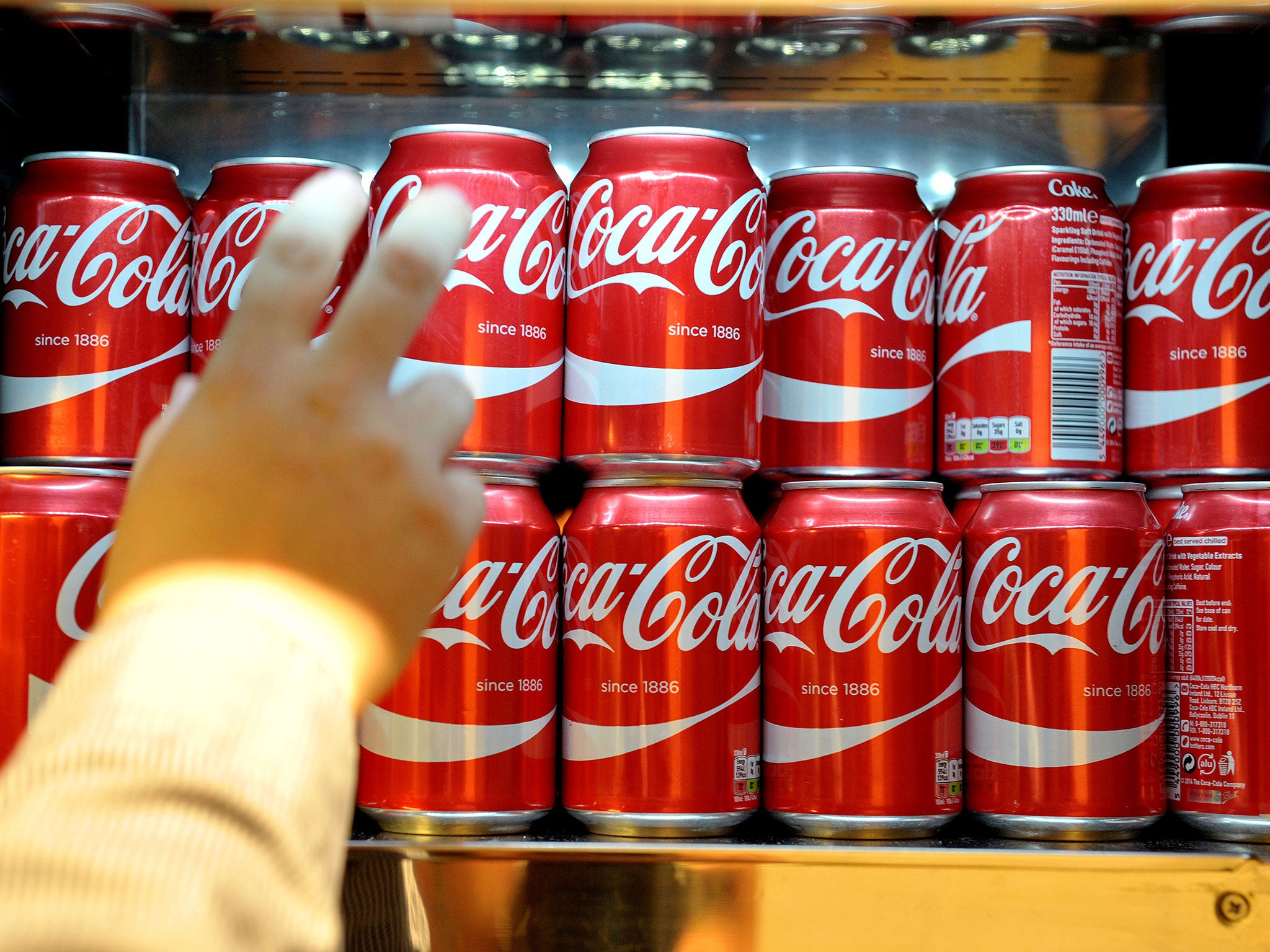Sugar tax on its own will fail to combat childhood obesity, says Government's own health department
'It is unlikely that a single action would be effective in reducing sugar intakes'

Your support helps us to tell the story
From reproductive rights to climate change to Big Tech, The Independent is on the ground when the story is developing. Whether it's investigating the financials of Elon Musk's pro-Trump PAC or producing our latest documentary, 'The A Word', which shines a light on the American women fighting for reproductive rights, we know how important it is to parse out the facts from the messaging.
At such a critical moment in US history, we need reporters on the ground. Your donation allows us to keep sending journalists to speak to both sides of the story.
The Independent is trusted by Americans across the entire political spectrum. And unlike many other quality news outlets, we choose not to lock Americans out of our reporting and analysis with paywalls. We believe quality journalism should be available to everyone, paid for by those who can afford it.
Your support makes all the difference.Introducing a sugar tax on its own will fail to combat childhood obesity, according to the Government’s own department responsible for the nation’s health.
In its Sugar Reduction report published last October, Public Health England said although price increases on specific high sugar products like sugar sweetened drinks, through fiscal measures like a tax or levy, would reduce purchasing in the short term if set high enough, other factors also needed to be implemented to combat obesity.
“It is unlikely that a single action would be effective in reducing sugar intakes,” the PHE report said. “The evidence broadly suggests that a structured approach, involving restrictions on price promotions and marketing, product reformulation, portion size reduction and price increase on unhealthy products, implemented in parallel is likely to have a more universal effect.
“As sugar intakes are higher in lower income groups, reducing levels of sugar in foods through reformulation may have the biggest effect on this group.”
The report made eight recommendations it said should be brought about to reduce sugar consumption, including the reduction of opportunities to market and advertise high sugar food and drink products to children and adults across all media, and the reduction of supermarket price promotions involving food with a high sugar content.
The new sugar tax will mean a charge of about 18p a litre for drinks containing 5 to 8 grams of sugar per 100ml, such as a can of Sprite, and a higher rate charge of 24p a litre for drinks like cans of Coca Cola with more than 8g per 100ml. However, the Institute for Fiscal Studies (IFS) said that the design of the levy “left a lot to be desired”.
Analyst Kate Smith said the policy may simply encourage consumers who were very keen on sugar to move away from soft drinks to other products which were not hit by the tax such as fruit juices, milk shakes, chocolate and other confectionery.
Ms Smith said: “It may very well be the case that a tax on sugary soft drinks might be a good starting point at reducing excess sugar consumption. But the effects of this tax are incredibly uncertain and depend crucially on how people respond to the tax both on the consumer and on the food industry side.
“Indeed the effect of the tax on total sugar consumption might be offset if people switch to fruit juices or other high sugary products.”
Professor Graham MacGregor, Chair of Action on Sugar said: “The country is still eagerly awaiting for David Cameron to announce his long overdue childhood obesity strategy and he now has a unique opportunity to produce a coherent, structured evidence-based plan based on our six key recommendations, which includes food and drink reformulation, to prevent obesity, type 2 diabetes and tooth decay.”
Health Secretary Jeremy Hunt said: “We know there is no silver bullet to solve our childhood obesity problem, but this is a fantastic start and our obesity strategy will build on this solid foundation.”
Join our commenting forum
Join thought-provoking conversations, follow other Independent readers and see their replies
Comments